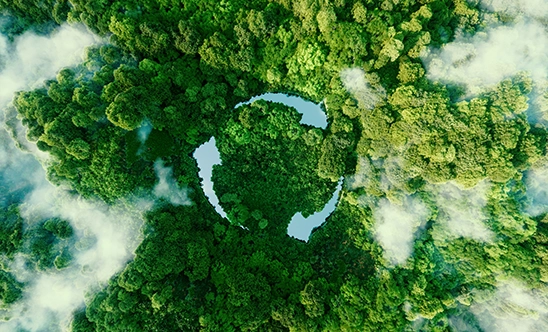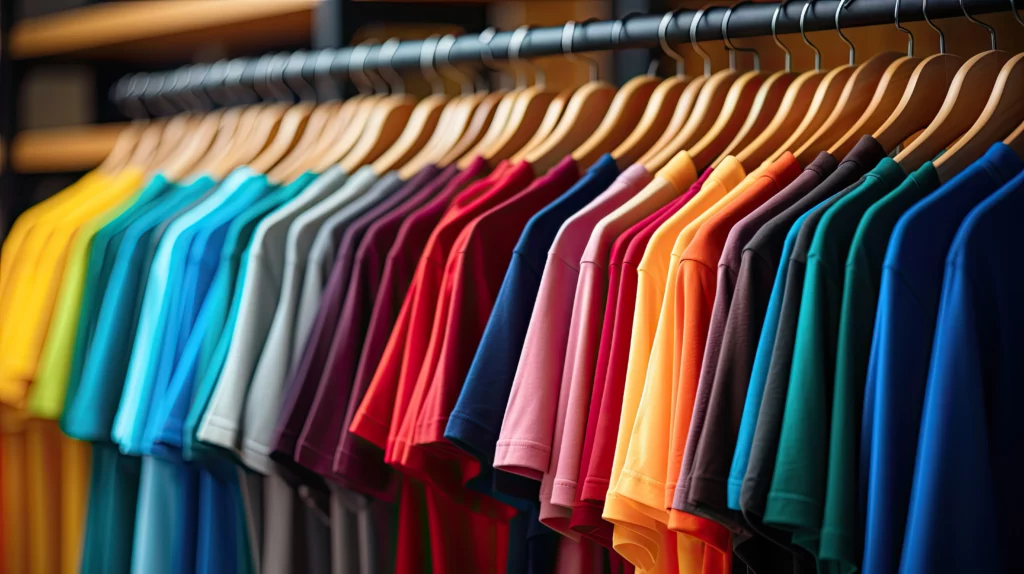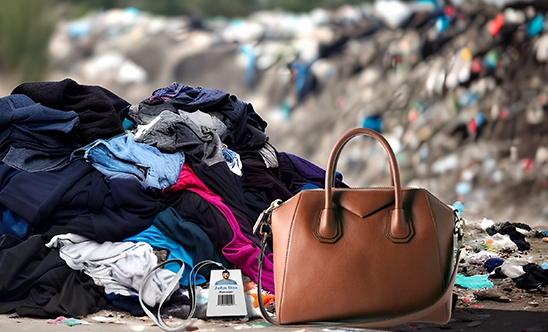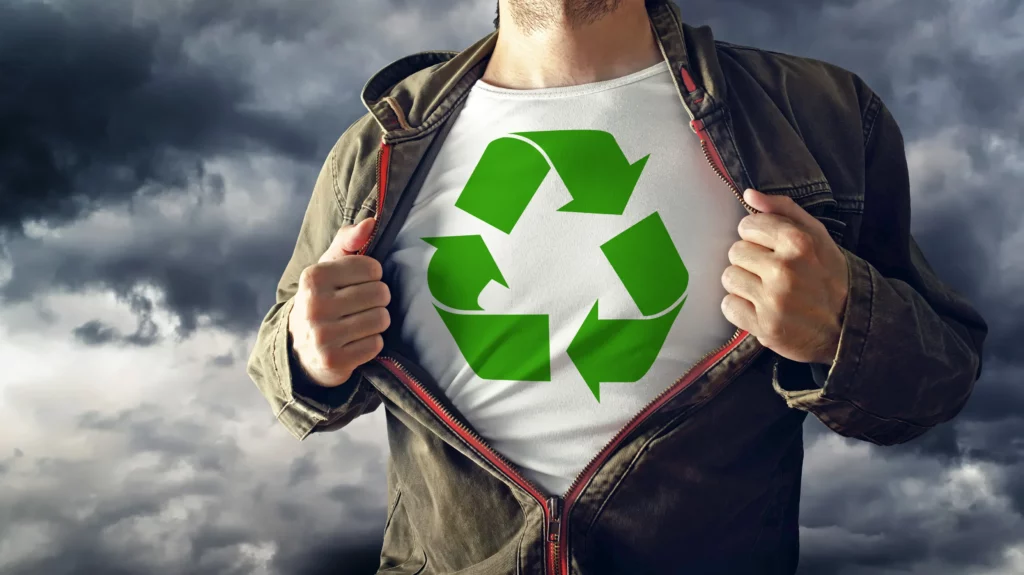Over the past year or so here in our Restore blogs we’ve highlighted a couple of areas in the world – representing the tip of the iceberg, frankly – that are swamped by discarded clothing. These include Chile’s Atacama Desert clothes mountain, and the 15 million garments a week that pass through Ghana’s famous second-hand clothing market in Accra, of which 40% fail to be upcycled or sold and go on to festoon the River Volta’s shoreline. Not only that, but tonnes of microplastic fibres from fossil fuel-derived textiles such as polyesters enter our oceans every day, polluting the planet’s waterways for all living things.
Textiles waste, in whichever industry sector they are used, is a clear and present environmental threat.
Did you know each year…
8-10
percent
of global greenhouse gases come from the fashion and textiles industry
93
billion
cubic metres of water are used by the industry
711,000
tonnes
of post-consumer textiles are thrown away in general waste in the UK.*
Take a step into circularity
Countries in the global south are overwhelmed by fast fashion clothing from, or produced on behalf of, the global north, and this overwhelm means much of it cannot be sorted for re-use or even broken down for recycling and re-purposing as new fibre or fuel.
What a waste!
If you are one of our customers in the clothing industry, or use clothes for merchandising or marketing, disposing of prototypes, samples, overs and end-of-season items while sticking to your business’ sustainability goals may seem like a one-way ticket to the Atacama Desert.
And, of course, textiles are broadly used for uniforms, shop-fittings, furniture and furnishings and car interiors. All these need to be managed sustainably and, in the case of uniforms and branded products, with security in mind when the time comes to dispose of them.
Restore Datashred can help you move from a vicious cycle to a virtuous one.
We are a major processor and essential link in the chain of recycling companies that support circular economy business practices. We regard waste as a resource and know that textile shredding is a first crucial stage in establishing the healthier loop of reducing landfill and pollution, lowering those shocking emissions figures and decreasing reliance on virgin resources.

What we recycle
- Whole garments or items
- Natural fibres
- Synthetics
- Mixed fibre materials
These are shreddable by our state-of-the-art shredding machines.
How we recycle
We collect from you, using our usual secure collections operatives and following our established security protocols, then return all your items to the Restore Datashred destruction centre closest to you, where it’s time to get sorting.
We categorise by natural and synthetic fibres, by colour and whether there are buttons, zips or any decorations to remove. Colour sorting, for example, means no re-dyeing is required for re-spun fibres, thus saving further use of energy, water and pollutants.
We operate a three-tier system for what happens next to textile shreds.
Tier 1
We send shredded natural and synthetic fibres that can be re-used to manufacture new textiles, fabrics and clothing, known as fibre-to-fibre recycling.

Tier 2
We send non-re-usable shredded materials to be recycled and re-used as insulation, geotextiles, wall padding and sound boarding, for instance.

Tier 3
For materials that are non-recyclable, we send shreds to be converted into chips or pellets suitable for melting and creating refuse derived fuel.

The benefits of textile shredding, one more time
There’s plenty to like as it can transform your waste management, supports a more sustainable way of producing fashion, for example, and creates economic and social benefits while making a significant impact on environmental conservation.
As a bonus…
We are a professional shredding company whose business model is all about security and sustainability. You can trust our security systems and processes to protect your textiles from fraud and the scams associated with identity and intellectual property theft. Check our accreditations and memberships here for reassurance that you won’t find your consignment of misprinted T-shirts or seized counterfeits down at a market stall any time soon!
*Data from WRAP.org, the organisation behind Textiles 2030
Join us! Find out more about eco-friendly textiles disposal below or get in touch with our knowledgeable customer service team on 0333 060 6570.
Contact Us Customer Login
Customer Login

